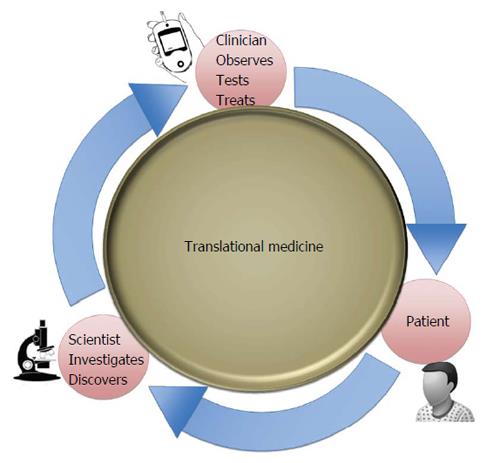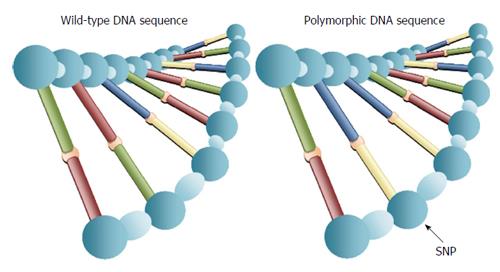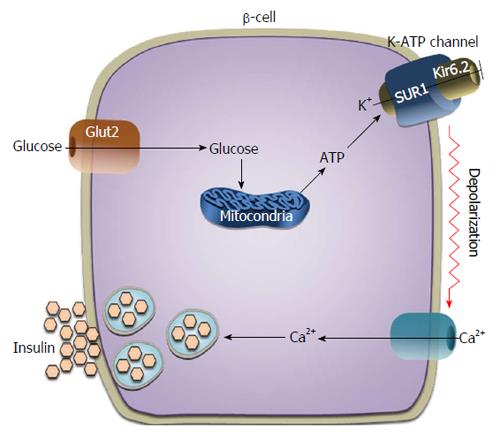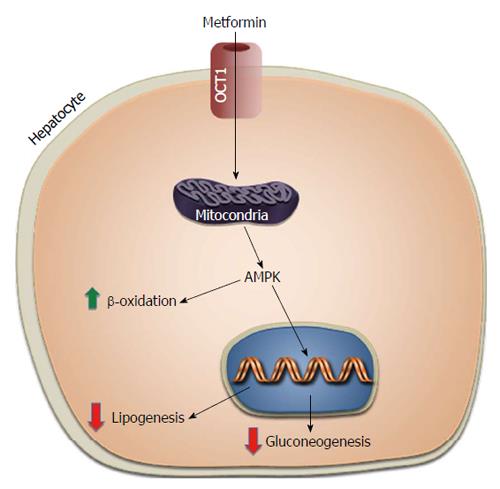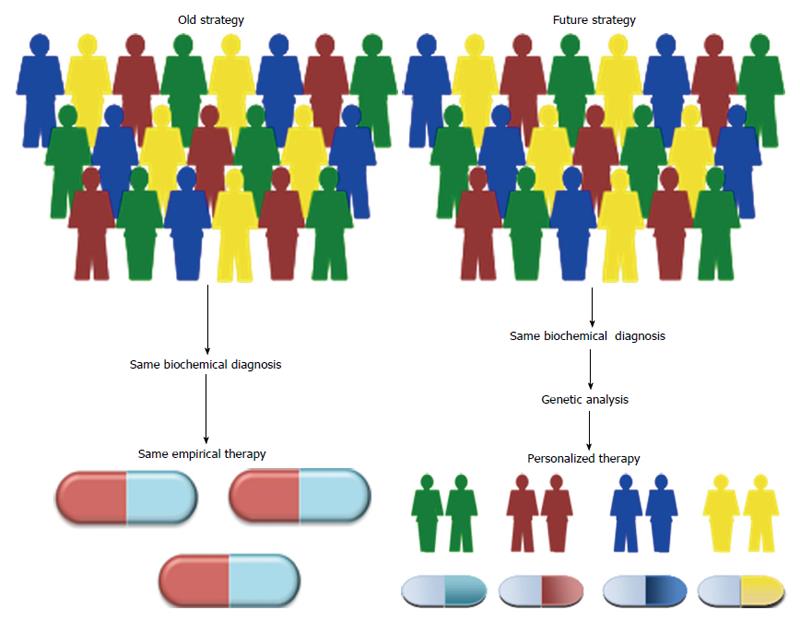Copyright
©2014 Baishideng Publishing Group Inc.
World J Transl Med. Dec 12, 2014; 3(3): 141-149
Published online Dec 12, 2014. doi: 10.5528/wjtm.v3.i3.141
Published online Dec 12, 2014. doi: 10.5528/wjtm.v3.i3.141
Figure 1 From bench to bedside.
Translational medicine is a discipline of biomedical research that attempts to connect basic research with clinical care.
Figure 2 Single nucleotide polymorphism.
As the most common type of variant, a single nucleotide polymorphism is characterized by a single DNA base pair substitution at a specific location in a gene. SNP: Single nucleotide polymorphism.
Figure 3 The ATP-sensitive K+ channels regulate insulin release in beta-cells.
Single nucleotide polymorphism in SUR1 and/or Kir6.2 genes may cause functional abnormalities of the ATP-sensitive K+ channel on the pancreatic β-cell membrane, leading to abnormalities in insulin secretion.
Figure 4 Organic cation transporter 1 plays a major role in drug uptake across the liver cell membrane.
Single nucleotide polymorphism associated with organic cation transporter 1 may contribute to variation in response to metformin. AMPK: Adenosine 5’-monophosphate (AMP)-activated protein kinase; OCT1: Organic cation transporters 1.
Figure 5 Pharmacogenetic testing.
The pharmacogenetic test has the potential to provide personalized therapy based on individual genetic variability.
- Citation: Brunetti A, Brunetti FS, Chiefari E. Pharmacogenetics of type 2 diabetes mellitus: An example of success in clinical and translational medicine. World J Transl Med 2014; 3(3): 141-149
- URL: https://www.wjgnet.com/2220-6132/full/v3/i3/141.htm
- DOI: https://dx.doi.org/10.5528/wjtm.v3.i3.141









